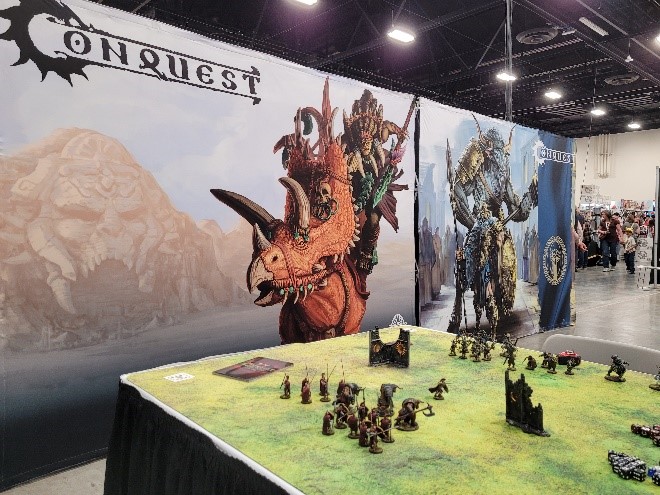
Calgary played host to the inaugural Game Con Canada. The three-day event, running from June 23 to 25, 2023, attracted thousands of attendees from the Calgary-area, throughout Canada, and globally. Held at the BMO Centre in downtown Calgary, with over 250,000 square feet of event space, the event is the largest gaming expo in Western Canada. Game Con has been projected to create between $19 million and $28 million in economic benefits for the Calgary economy.
The creative technology sector is becoming increasingly important to Alberta’s digital economy. Indeed, ICTC is currently producing a study to benchmark Alberta’s creative technology sector, which includes video games, augmented and virtual reality (AR/VR), and other interactive digital media (IDM). The study will create a better understanding of the sector’s labour demand, workforce development needs, and pipeline of creative tech and IDM talent in Alberta. Notably, ICTC has carried out similar studies on: Ontario’s creative technology sector, British Columbia’s creative tech sector and talent pipeline, and Canada’s immersive tech sector, which includes AR/VR, mixed-reality, and 360-degree video.
Game Con attracted numerous international game producers, but the event also showcased local talent from Alberta, and throughout Western Canada. Studios and indie game developers from Alberta, British Columbia, Manitoba, and Saskatchewan all had a presence on the event floor, demonstrating their latest gaming products. This included various video games, AR/VR games, educational games, and gamer streaming services. There was also representation from gaming industry associations.


Throughout the show, Game Con offered eSports tournaments, including Fortnite, Valorant, and Super Smash Bros. Ultimate; panels with game developers and gaming personalities; a social media streamer area; video game cosplay competitions; and open gaming sessions. The expo also featured escape rooms, laser tag, VR games, and an RC racing track.
Postsecondary institutions such as the University of Calgary, NorQuest College, and Lethbridge College had presence on the event floor, promoting their research and academic programming related to video games and AR/VR, as well as eSports leagues. Postsecondary institutions are increasingly forming eSports teams and leagues, in the same why that they have traditionally supported varsity sports teams and intramural sports leagues.

Along with the video games, AR/VR, and other interactive digital media on display, Game Con also featured non-digital game offerings, which included board games, collectable card games, tabletop miniatures games, and role-playing games. Mixing video games and other forms of digital interactive media with non-digital games, like board games, attracted a wide variety of vendors and gamers to the show.


Delivering an event on this scale is an impressive achievement for its first year. Already successful, Game Con Canada will undoubtedly grow in the coming years. Game Con is poised to become an important forum to showcase studio and indie video game designer talent across Western Canada to the wider world. Game Con’s early success demonstrates strong demand for gaming products in Alberta, but it also foretells of an increasingly influential gamer subculture and a growing video gaming industry that are both thriving in Western Canada.
ICTC Alberta Interactive Digital Media Study
As discussed, ICTC is currently producing a study on Alberta’s creative technology sector, including video games, AR/VR, and other interactive digital media (IDM). The study will focus on benchmarking the sector, understanding labour demand, workforce development, and the province’s pipeline of IDM talent. If you are interested in learning more about ICTC’s Alberta creative technology sector study, click here.
